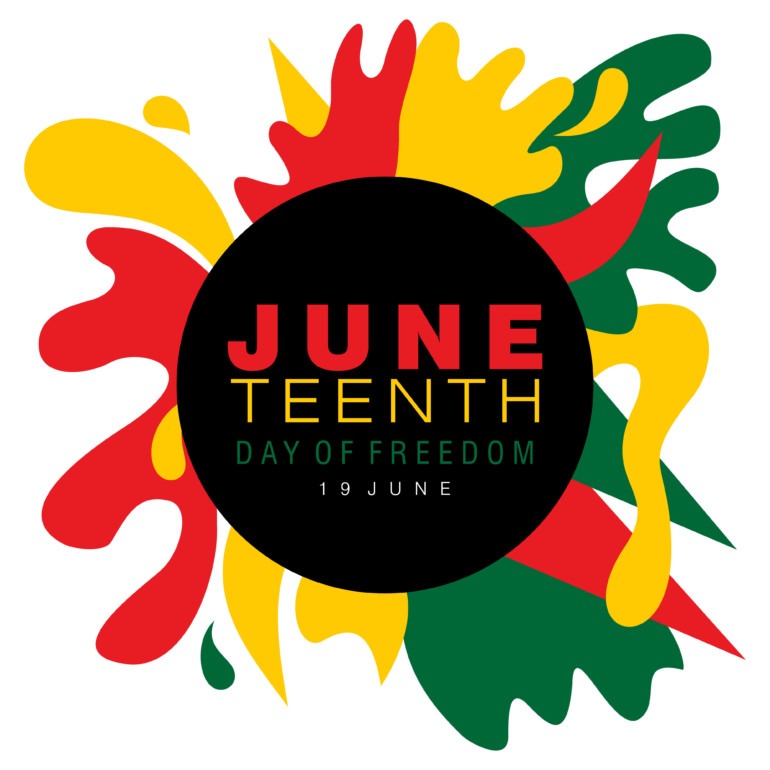The Fourth of July is a nationally recognized and celebrated holiday, commemorating American independence and freedom from Great Britain.
But, this freedom did not apply to everyone. Our great nation “conceived in liberty,” was born in chains and raised on plantations. As many non-Black Americans now work to confront the deep roots of racism in the United States, it is important to understand our nation’s troubling past.
To raise awareness and demonstrate their commitment to equity and social justice, many communities around the Bay Area have taken a step forward to officially recognizing Juneteeth, the oldest celebrated commemoration of the ending of slavery in the United States. Juneteenth, which originated in Galveston, Texas, in 1865, is now celebrated nationally on June 19.
In Santa Clara County, supervisors voted unanimously to declare Juneteenth an official county holiday — a first among California counties — funded by a $2.3 million reserve that the board approved last August. Here in Marin County, the board of supervisors adopted a resolution recognizing Juneteenth in honor of the memories of George Floyd, Breonna Taylor, Ahmaud Arbery and the many other African-Americans murdered by police officers.
As many Americans now work to confront the deep roots of racism in the United States, it is important to understand our nation’s troubling past, and learning about and celebrating Juneteenth is one way to start.
Origins of Juneteenth
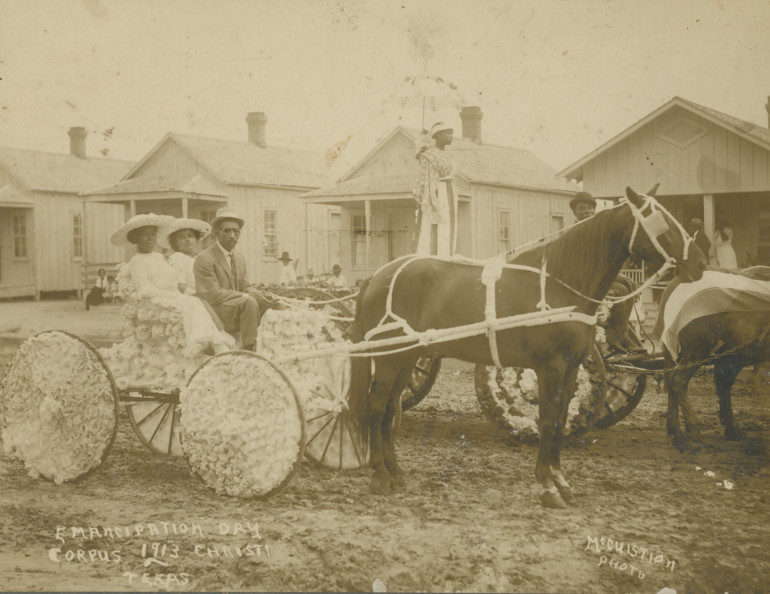
Juneteenth is a 156-year old holiday celebrating the emancipation of African Americans from slavery in the United States.
It does not honor the signing of the Emancipation Proclamation, or the end of the Civil War, as many would think. The Emancipation Proclamation came into effect on January 1, 1863, declaring all enslaved peoples in the Confederacy free — on the condition that the Union won the war. With this single document, barely 700 words in length, the legal status of 4 million slaves in the Confederacy was changed.
But, conditions in the South did not change and many slave owners, obviously, withheld this information.
The last battle of the Civil War was fought in 1865, two years after the Emancipation Proclamation was signed. Texas remained a stronghold in the South even after the final battle of the war, and some 250,000 enslaved African American slaves were not made aware of their freedom. They only learned of it when Union General Gordon Granger arrived in Galveston, Texas, on June 19, 1865 and announced that President Abraham Lincoln had issued a proclamation freeing them.
Today, there remain varying accounts of why the news of freedom did not reach Texas sooner. It is also important to note that Texas remained a Confederate state until 1865, when Robert E. Lee finally surrendered to the Union Army, so they would not have enforced Lincoln’s proclamation.
On that day, June 19, Granger read aloud General Order, N0. 3: “The people of Texas are informed that, in accordance with a proclamation from the Executive of the United States, all slaves are free. This involves an absolute equality of personal rights and rights of property between former masters and slaves, and the connection heretofore existing between them becomes that between employer and hired labor.”
Granger’s announcement was met with equal parts terror, confusion and excitement. But, newly freed slaves finally had a day to rally around. They transformed this day of unheeded military orders into their Independence Day.
Most Black folks knew that it was not a celebration of victory or triumph — but rather an acknowledgment that change was possible. There was still work to be done. In its 1866 state constitution, Texas refused to ratify the Thirteenth Amendment*, abolishing slavery and involuntary servitude. But, because two-thirds majority ratified it, it was adopted as federal legislature to the United States Constitution.
* (A loophole in the Thirteenth Amendment, allowing incarcerated persons to be subjected to slavery, would later cause problems for Black Americans. Mass incarceration in the United States exploded in the 20th century, essentially once again enslaving millions of people. More about this here. Or, you can watch the documentary, 13th, by filmmaker Ava DuVernay on Netflix.)
As newly freed Texans moved to neighboring states, June 19, Juneteenth as it came to be known, celebrations spread across the United States. The celebrations became a space for reassurance, prayer and the gathering of lost family members. They reread the Emancipation Proclamation, gathered around the barbecue pit to honor slave food delicacies, played games and held the occasional rodeo. African American historian Henry Louis Gates Jr. notes that it was used as an occasion “to measure progress against freedom and teach rising generations the values of self-improvement and racial uplift.”
Juneteenth Endures
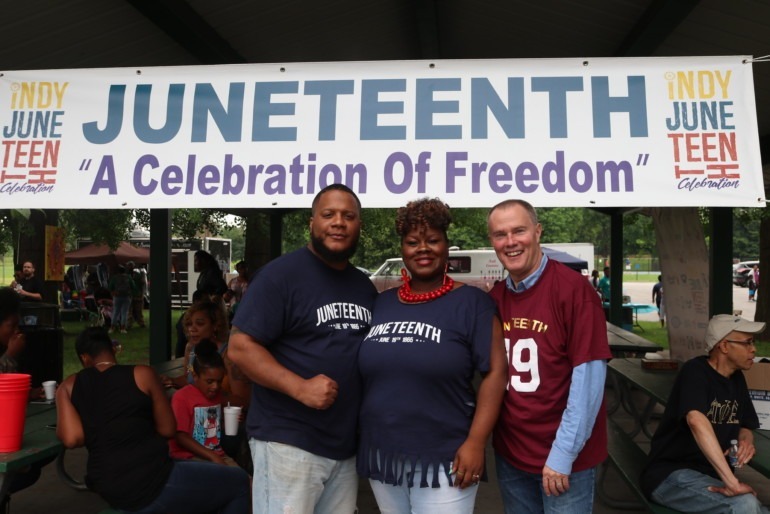
Early Juneteenth celebrations were a continued reminder of the long road to freedom African Americans would still need to endure. In some instances, white Southerners forbade Black people from using public spaces for their Juneteenth celebrations. So, they instead gathered near rivers and lakes, eventually raising enough money to buy their own celebration sites. In 1872, the Rev. Jack Yates and a group of fellow formerly enslaved people raised $800 to buy the land to make a yearly space to celebrate Juneteenth, according to the Houston Chronicle. The park was fittingly named, Emancipation Park, and it became an official city park in 1918. It is Houston’s oldest park, and continues to hold Juneteenth celebrations (in 2019 thousands of people celebrated there!).
The holiday’s survival was dependent on its move across state lines, brought upon by the Great Migration. In her book The Warm of Other Suns: The Epic Story of America’s Great Migration Isabel Wilerson writes, “The people from Texas took Juneteenth Day to Los Angeles, Oakland, Seattle, and other places they went.”
But, the Smithsonian Magazine writes that, “in the bitterness of the Reconstruction and Jim Crow eras, few states of the former Confederacy had any interest in celebrating emancipation. And as many African Americans migrated north, especially in the Depression era, Juneteenth became a largely forgotten vestige of the Civil War era.”
It was the tumultuous events of the ’60s that brought Juneteenth back into focus. After Martin Luther King Jr. was assassinated on April 4, 1968, Rev. Ralph Abernathy promised to fulfill his Poor People’s March, a campaign meant to address the employment and housing problems of the poor throughout the United States. The March fell short of its goals, and organizers decided to cut it short, instead holding a Juneteenth celebration. William Wiggins Jr., a professor Emeritus of Folklore at Indiana University, explained in an interview with Smithsonian Magazine that his theory is that delegates from the march took the idea of celebrating Juneteenth back to their respective communities. After that summer, instances of Juneteenth started popping up in newspapers around the country. But, until recently, Juneteenth was still not widely recognized outside the Black community and is even still largely ignored in school curricula.
Juneteenth Today
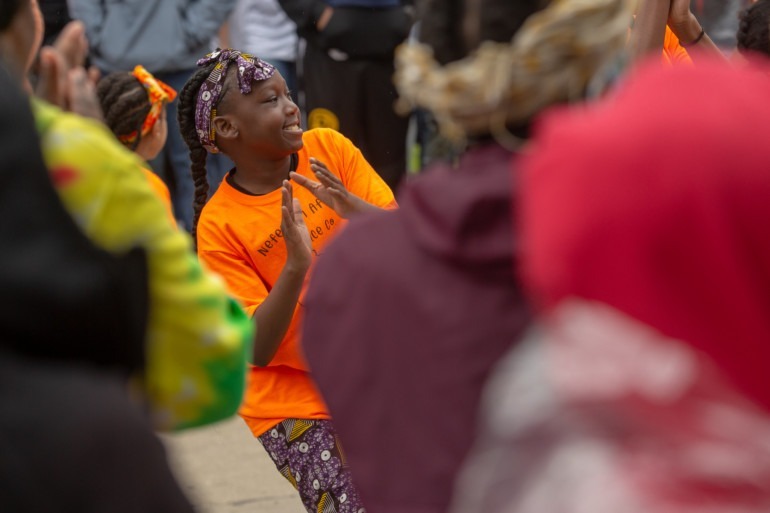
In 1980, Texas became the first state to recognize June 19 as a state holiday, although the state’s government offices still do not close for the day. As of June 2020, Juneteenth is recognized by 46 of the 50 U.S. states and Washington D.C., and there is an ongoing effort underway by voter mobilization non-profit, NextGen America, for federal recognition. Also last year, companies like Twitter, Square, Vox Media, Nike and the N.F.L. recognized Juneteenth as a company holiday — designating it a paid day off.
Last Juneteenth, President Biden spoke at JusticeCon, a social justice forum organized by Faith For Black Lives. In his speech, he vowed to, “bring every ounce of my faith and my work to the task of rebuilding America in a way that finally delivers the full share of equality, opportunity and dignity to Black Americans.”
Now, Juneteenth celebrations take place across the country. Organizations such as the Smithsonian Institution and the Henry Ford Museum have begun sponsoring Juneteenth-centered activities, with the mission to promote and cultivate knowledge and appreciation for African American history and culture.
Today, celebrations are still centered around the same traditions: religious services, storytelling, music, food (barbecue!) and honoring Black culture. The New York Times also published an article about Juneteenth food traditions, pointing to the inclusion of red foods as “crimson symbol[s] of ingenuity and resilience in bondage.” Some celebrations are more spiritual and intimate, used as a day of meditation and multicultural prayer.
It is also used as a reminder of the work that still needs to be done to achieve racial equality in America and of the life-threatening issues, such as police brutality and mass incarceration, that continue to plague Black communities. Last year, Juneteenth fell amidst a reignited civil rights movement and protests around police brutality in the wake of the brutal murders of George Floyd, Breonna Taylor, Tony McDade and countless others. Fast forward to today, and this movement has grown exponentially; the murders of Daunte Wright, Ma’Khia Bryant, and too many other African Americans have added fuel to the fire in this fight for justice. In a national reckoning around systemic oppression in the United States, it is crucial to understand the 400 years that have led to it.
How to Celebrate
For non-Black folks wanting to support the Black community this Juneteenth, the most impactful actions you can take are to educate yourself, grapple with the ways white privilege has functioned in your own life and commit to lifelong anti-Racist practices. It is also important to do research into local organizations that may be receiving less funding or national recognition. It is also incredibly important for non-Black folks to be respectful of organizers and participants, and not to center themselves in the celebrations.
This year, Bay Area residents will celebrate Juneteenth — both virtually and in-person — with parades, performances, inspirational speakers, food and music. Visit the official Juneteenth website for ideas about how to celebrate, or check with your local chamber of commerce to learn about any events planned in your community; just remember to take proper health precautions, as we must still be mindful of the coronavirus pandemic. Here are a few events to check out:
Marin:
June 17, Tiburon Second Annual Juneteenth Celebration
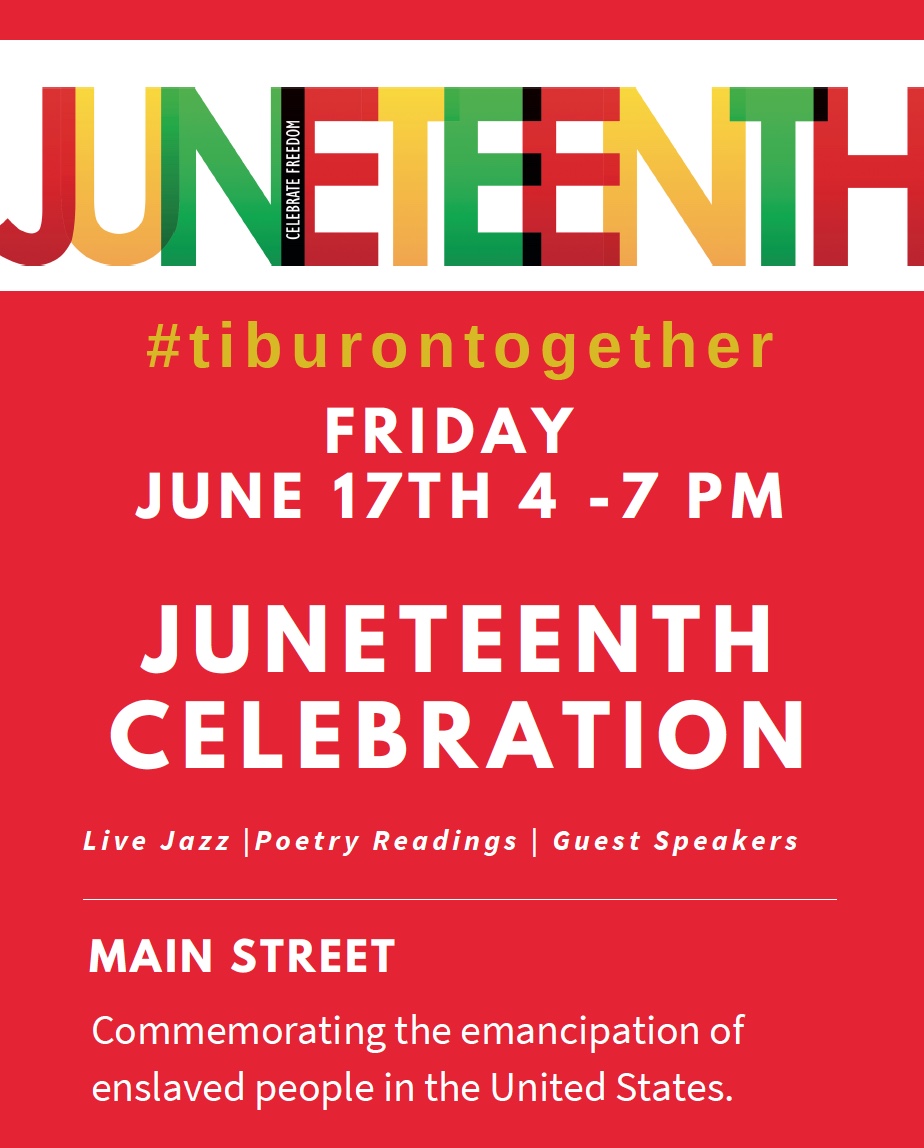
Hosted by the Tiburon Peninsula Chamber of Commerce from 4–7 p.m., the city of Tiburon’s second annual Juneteenth celebration will include live jazz, poetry readings, guest speakers and an appearance by the Black Cowboys.
June 19, 6th Marin City Juneteenth Festival
The event at Rocky Graham park will feature music, including traditional drumming, gospel, R&B, jazz, Afro World (James Henry- Hands on Fire Band,) hip hop, roots, neo soul (Piwai), a theatrical presentation for youth dance troop Studio 121, as well as an African marketplace and food. Sponsored by the Marin Community Foundation and MC Arts & Culture.
June 19 Juneteenth Freedom Festival
In an effort to promote a more diverse, equitable and inclusive Mill Valley and Southern Marin, Mill Valley Force for Racial Equity & Empowerment and Mill Valley Recreation are hosting a Freedom Festival with entertainment, food and information booths at Mill Valley’s Depot Plaza.
Bay Area:
June 4, 11, 16–19: Bayview Opera House Juneteenth Celebration
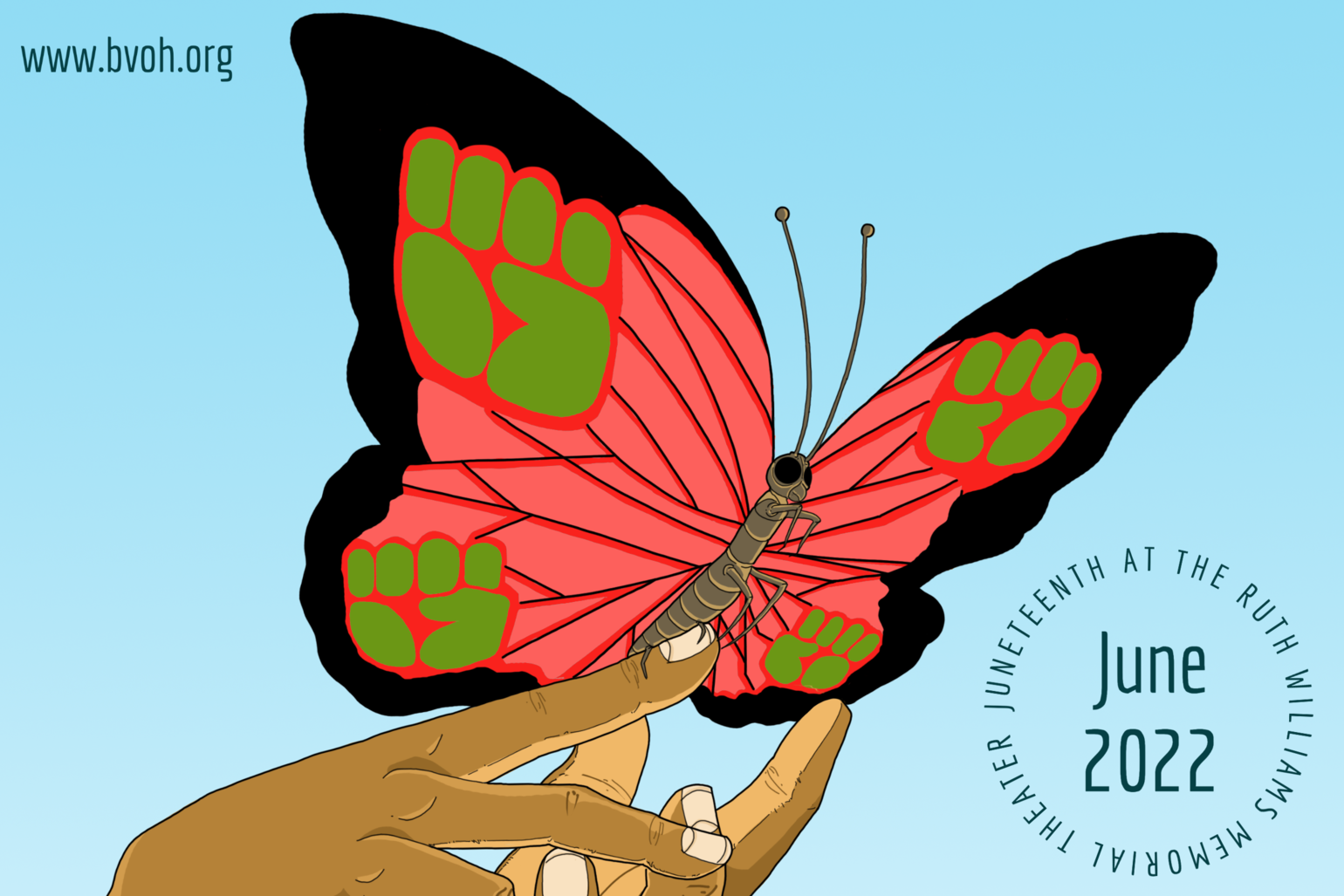
Over three consecutive weekends, San Francisco’s Bayview Opera House Ruth Williams Memorial Theatre celebrates Juneteenth with a Point Pushas Artist Expo; a Ferguson Rises documentary film screening premiere and community activation with Mike Brown, Sr., chronicling his journey over the past five years since the passing of his son; choreographer Gregory Dawson’s “The Joy Protocol” performed by dawsondancesf; and a community Juneteenth celebration.
June 17– June 18 Jazzteenth
In the Golden Gate Park bandshell, Illuminate and The Fillmore Jazz Ambassadors will host two days of jazz music, with performances from five-time Grammy winner Victor Wooten and the Wooten Brothers, the John Coltrane Church Ensemble, Lady Bianca, The Charles Unger Experience, Robin Duhe, and Fillmore Slim, performing from 12 noon to 4 pm.
June 18 Juneteenth SF Freedom Celebration
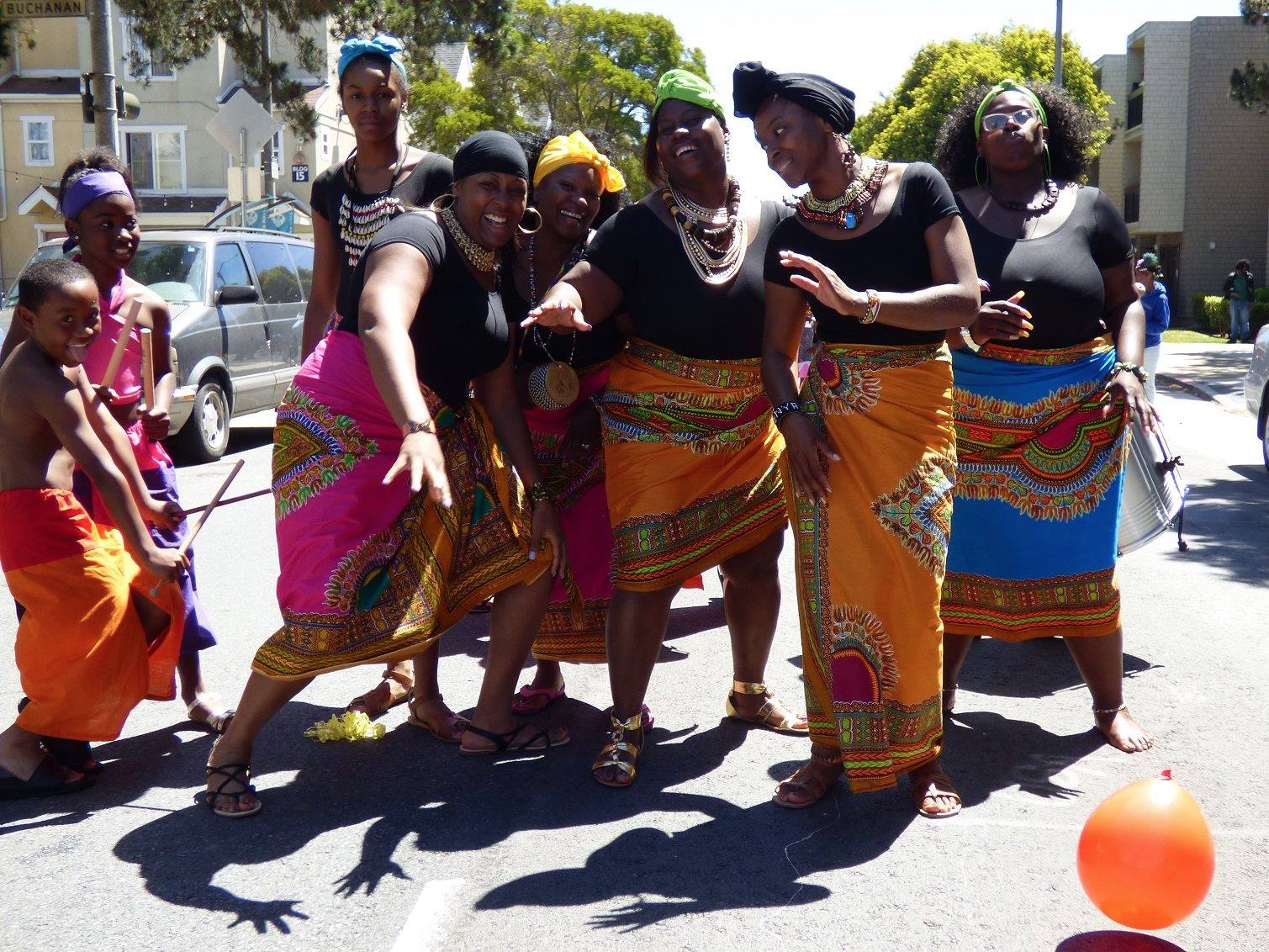
The Freedom Celebration will span eight city blocks across the Fillmore District. The huge event will feature dozens of retail and food vendors, free carnival rides and games, a free block party with concerts, a classic car show, a hair and fashion show and more. The event is spearheaded by the Juneteenth SF Freedom Organization and supported by community leaders including Mayor London Breed and Dream Keeper, Executive Director, Dr. Sheryl Davis. Their website also lists other Juneteenth events taking place across San Francisco.
June 18 MLK Community Festival
Santa Rosa hosts an afternoon of musicians, choirs, kids’ games, presentations by Entrepreneurs of Tomorrow, a wellness area and a walk to Martin Luther King Jr. Memorial Park in memory of Vince Harper and his work with Community Action Partnership of Sonoma County.
June 18 San Francisco’s Museum of the African Diaspora
Museum of the African Diaspora offers free admissions; a virtual program, Art as We See It: Protest Songs and Art; a live SFJAZZ performance on site; and a live and ZOOMed Myths of Slavery and Juneteenth discussion with University of Texas at Austin Professor Daina Ramey Berry.
June 18 Richmond Juneteenth Family Day and Festival
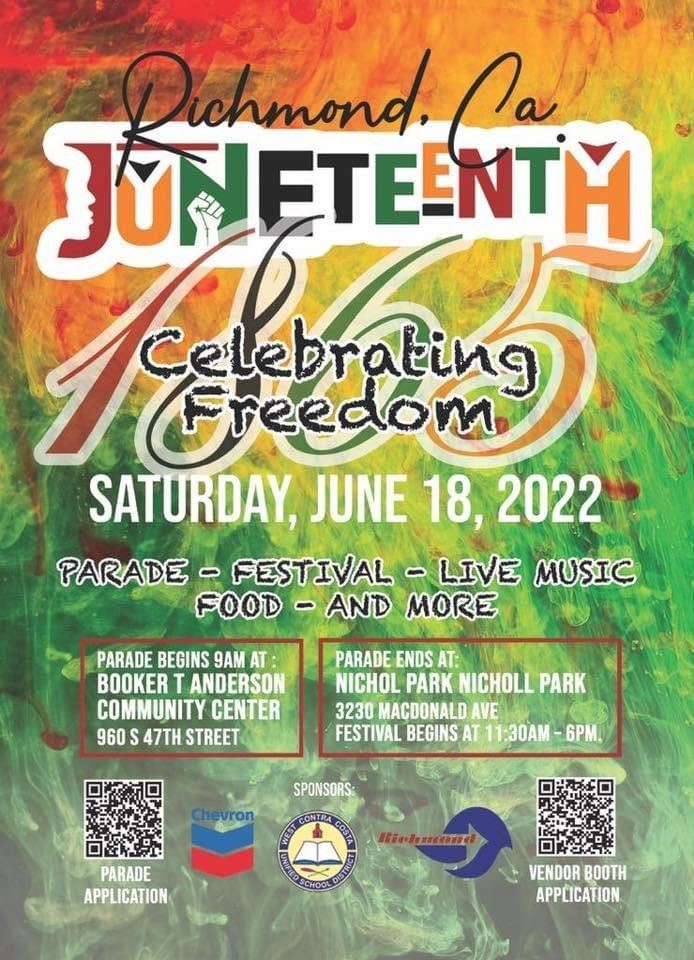
The Richmond Juneteenth parade starts at the Booker T. Anderson Community Center; expect live music, food, and more. The event is hosted by The Neighborhood Block Association (NBA), an organization created to save Richmond’s Juneteenth celebrations after city officials canceled all festivals due to financial hardships in 2004.
June 18-19 Afrocentric Juneteenth, Oakland’s Fam Bam, and Pan African Wellness Festival
The 10th anniversary of the Pan African Wellness Fest and Fam Bam Juneteenth Celebration at Lake Merritt will offer a plethora of events and activities, from holistic wellness offerings spanning meditation, mental health, Tai Chi and yoga, to spoken word, a silent disco, interactive art installations, a youth zone, keynote speakers, food vendors, DJs, a youth zone, a Black Father’s Day tribute, and more.
June 19 Berkeley Juneteenth Festival
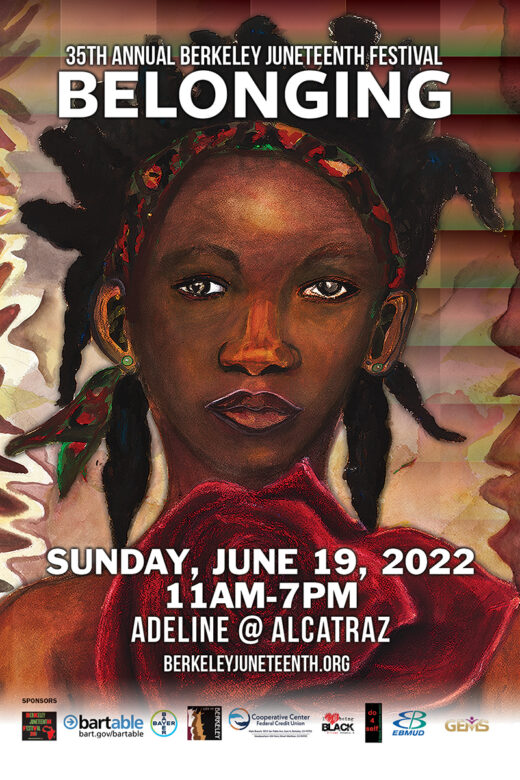
Berkeley’s festival is the longest running Juneteenth event in Northern California. The intersection of Adeline St. and Alcatraz Ave. hosts a community festival; live performances of drumming, jazz and spoken word on two stages; and a kids/STEM zone with a rock wall, skating and storytellers.

